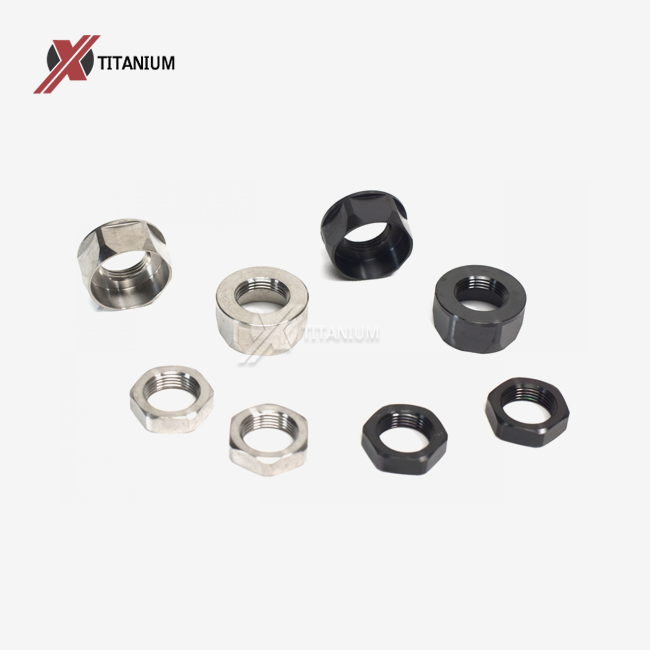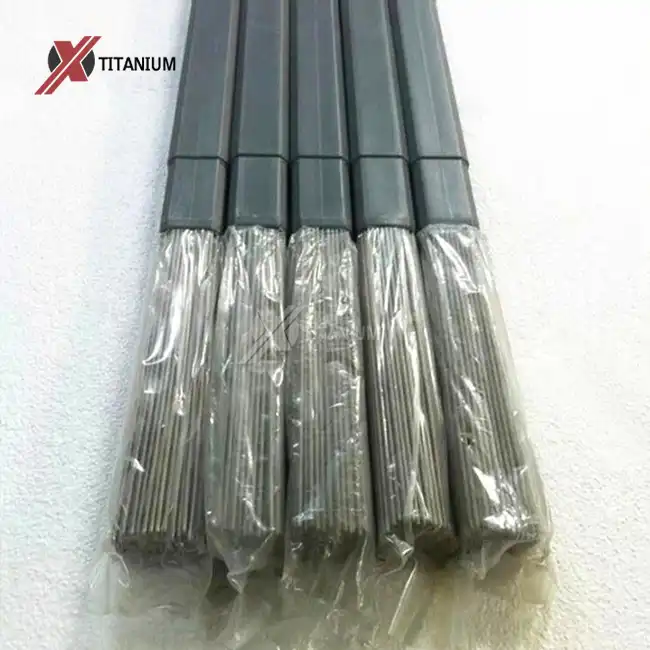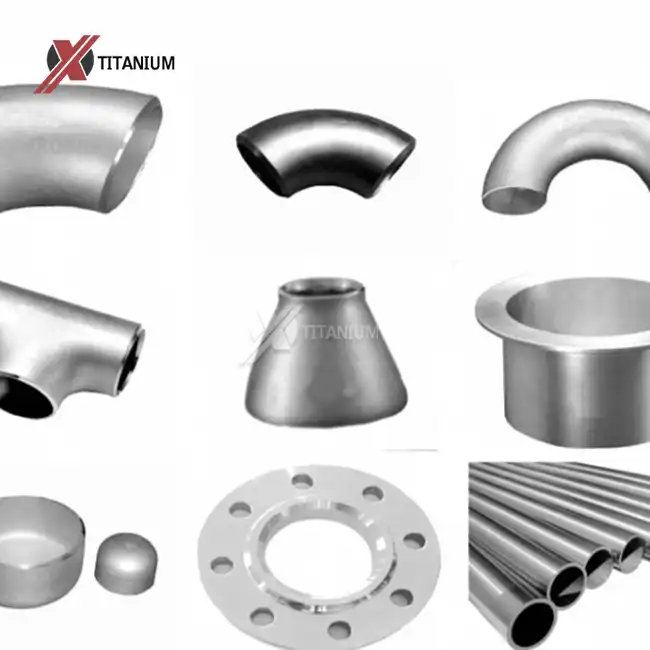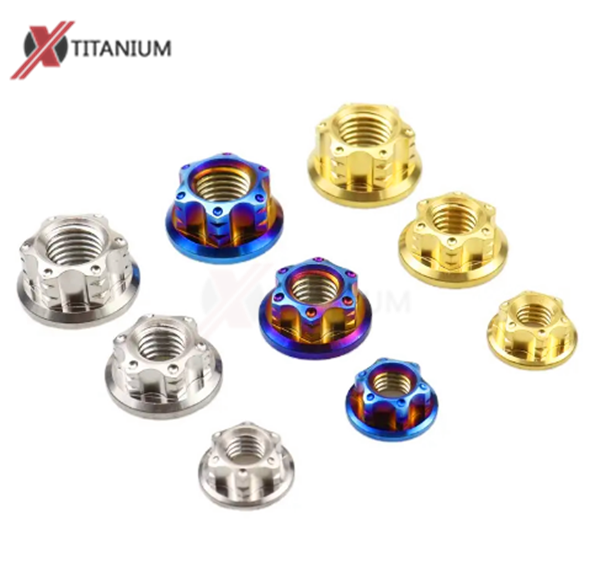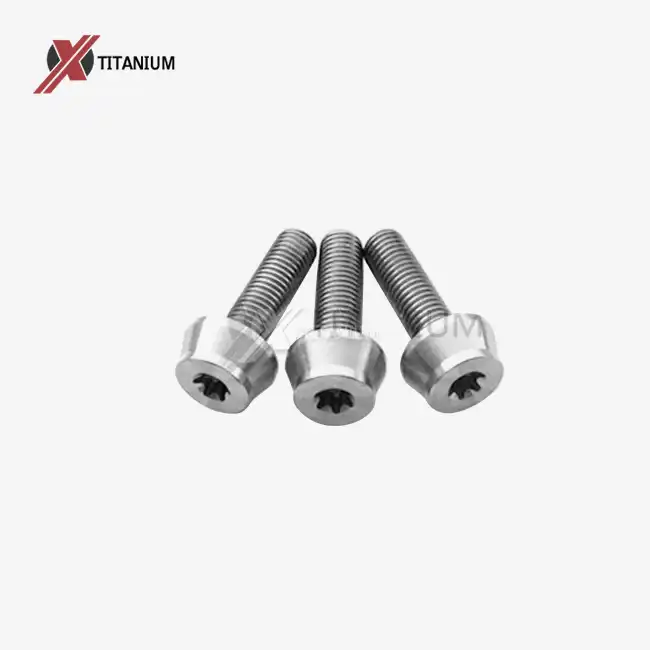The Unique Properties of Titanium Jam Nuts in Industrial Applications
Unmatched Strength-to-Weight Ratio
Titanium jam nuts boast an exceptional strength-to-weight ratio, making them a game-changer in industrial machinery. This remarkable property allows for robust fastening without adding unnecessary bulk to the equipment. The lightweight nature of titanium contributes to improved energy efficiency and reduced wear on moving parts, resulting in smoother operation and extended machine life.
Moreover, the high strength of titanium jam nuts ensures that they can withstand extreme forces and pressures without deformation or failure. This resilience is particularly crucial in high-stress industrial environments where equipment reliability is paramount. By maintaining their structural integrity under demanding conditions, titanium jam nuts help prevent costly breakdowns and minimize production downtime.
Superior Corrosion Resistance
One of the standout features of titanium jam nuts is their exceptional resistance to corrosion. In industrial settings where machinery is often exposed to harsh chemicals, moisture, and corrosive substances, this property is invaluable. Titanium naturally forms a protective oxide layer when exposed to air, which acts as a barrier against corrosion and chemical attack.
This inherent corrosion resistance translates to several benefits for industrial machines. Firstly, it extends the lifespan of the fasteners themselves, reducing the frequency of replacements and associated maintenance costs. Secondly, it prevents the formation of rust and corrosion byproducts that could contaminate sensitive processes or products. Lastly, the durability of titanium jam nuts in corrosive environments ensures that crucial components remain securely fastened, maintaining the structural integrity of the machinery.
Excellent Vibration Dampening
Industrial machines often generate significant vibrations during operation, which can lead to loosening of fasteners and potential equipment failure. Titanium jam nuts excel in mitigating these vibrations due to their unique material properties. The atomic structure of titanium allows it to absorb and dissipate vibrational energy more effectively than many other metals used in fasteners.
By dampening vibrations, titanium jam nuts help maintain the tight tolerances required in precision machinery. This capability is particularly beneficial in high-speed rotating equipment, where even minor imbalances can lead to catastrophic failures. The vibration-dampening properties of titanium jam nuts contribute to smoother operation, reduced noise levels, and increased overall equipment reliability.
Enhanced Performance and Longevity of Industrial Machinery
Improved Fastener Retention
Titanium jam nuts excel in maintaining secure connections in industrial machinery. Their unique properties, including high tensile strength and resistance to galling, ensure that fastened components remain tightly locked even under extreme conditions. This improved retention capability is crucial in preventing loosening due to thermal cycling, vibration, or mechanical stress.
The enhanced fastener retention provided by titanium jam nuts translates to several tangible benefits for industrial machines. It reduces the risk of component failures caused by loose fasteners, which can lead to costly downtime and potential safety hazards. Additionally, the reliable locking mechanism allows for more precise control over machine tolerances, resulting in improved performance and product quality.
Reduced Maintenance Requirements
The use of titanium jam nuts in industrial machinery significantly reduces maintenance requirements. Their corrosion resistance eliminates the need for frequent inspections and replacements due to rust or degradation. This durability translates to fewer maintenance cycles, reduced labor costs, and minimized production interruptions.
Furthermore, the stability provided by titanium jam nuts means that equipment alignments and calibrations remain accurate for longer periods. This consistency reduces the need for frequent adjustments and recalibrations, allowing maintenance teams to focus on more critical tasks. The overall result is a more efficient maintenance schedule and improved machine uptime.
Extended Equipment Lifespan
By incorporating titanium jam nuts, industrial machines benefit from an extended operational lifespan. The combination of corrosion resistance, vibration dampening, and superior fastener retention contributes to reduced wear and tear on critical components. This longevity not only maximizes the return on investment for expensive industrial equipment but also decreases the frequency of major overhauls or replacements.
The extended lifespan of machinery equipped with titanium jam nuts also has positive environmental implications. By reducing the need for premature equipment replacement, manufacturers can minimize waste and conserve resources. This aligns with sustainability goals and can contribute to a company's green credentials in an increasingly environmentally conscious market.
Cost-Effectiveness and ROI of Titanium Jam Nuts in Industrial Settings
Initial Investment vs. Long-Term Savings
While titanium jam nuts may have a higher upfront cost compared to traditional fasteners, their long-term benefits often result in significant cost savings. The extended lifespan, reduced maintenance requirements, and improved machine performance all contribute to a favorable return on investment (ROI). When evaluating the cost-effectiveness of titanium jam nuts, it's crucial to consider the total cost of ownership rather than just the initial purchase price.
Industrial facilities that have adopted titanium jam nuts often report substantial reductions in downtime-related costs. The improved reliability and reduced frequency of fastener failures translate to fewer unexpected shutdowns and more consistent production schedules. This increased uptime can lead to higher productivity and improved customer satisfaction, further enhancing the overall ROI.
Impact on Production Efficiency
The use of titanium jam nuts can have a profound impact on production efficiency in industrial settings. By ensuring more stable and reliable machine operation, these fasteners contribute to consistent product quality and reduced scrap rates. The vibration-dampening properties of titanium also allow for higher operating speeds in some applications, potentially increasing throughput without compromising precision or safety.
Moreover, the reduced maintenance requirements associated with titanium jam nuts mean that machines spend less time idle for repairs or adjustments. This increased availability allows for more flexible production scheduling and better utilization of equipment capacity. In industries where time is money, the efficiency gains provided by titanium jam nuts can translate to a significant competitive advantage.
Safety and Compliance Considerations
Titanium jam nuts play a crucial role in enhancing the safety of industrial machinery. Their reliable fastening properties reduce the risk of component failures that could lead to accidents or injuries. In industries with stringent safety regulations, the use of high-quality fasteners like titanium jam nuts can help ensure compliance and avoid costly penalties or shutdowns.
Additionally, the corrosion resistance of titanium jam nuts is particularly valuable in industries where hygiene and contamination control are critical, such as food processing or pharmaceutical manufacturing. By eliminating the risk of rust or metal contamination, these fasteners help maintain a clean and safe production environment, ensuring both product quality and regulatory compliance.
Conclusion
In conclusion, the adoption of titanium jam nuts in industrial machinery offers a multitude of benefits that significantly enhance performance, reliability, and cost-effectiveness. From their unmatched strength-to-weight ratio to superior corrosion resistance and excellent vibration dampening properties, titanium jam nuts provide a robust solution for the most demanding industrial applications. The improved fastener retention, reduced maintenance requirements, and extended equipment lifespan contribute to substantial long-term savings and increased operational efficiency.
As industries continue to seek ways to optimize their processes and maintain a competitive edge, the use of advanced materials like titanium in critical components such as jam nuts becomes increasingly important. By investing in these high-performance fasteners, manufacturers can ensure their machinery operates at peak efficiency, minimize downtime, and ultimately improve their bottom line.
For more information about titanium jam nuts and other high-quality titanium products for industrial applications, please contact Baoji Chuanglian New Metal Material Co., Ltd. at info@cltifastener.com or djy6580@aliyun.com. Our team of experts is ready to help you find the perfect titanium solutions for your industrial needs.
